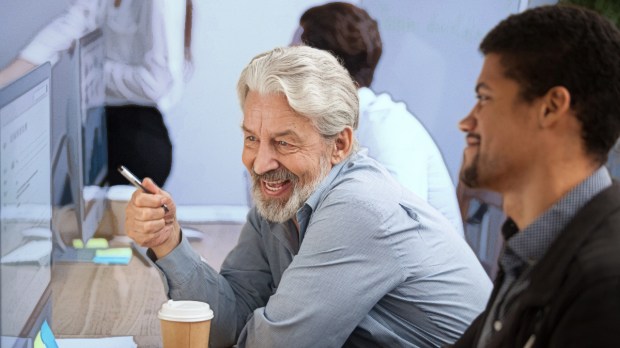Lenten Campaign 2025
This content is free of charge, as are all our articles.
Support us with a donation that is tax-deductible and enable us to continue to reach millions of readers.
On this date 2,000 years ago, Jesus would have been in his early- to mid-20s. We don’t know much about his life in Nazareth during that period, but we can certainly say that he was raised well in a loving family.
I like to imagine how Jesus learned to be a builder under Joseph’s guidance during these hidden years, learning how to flatten and plane lumber, how to make precise measurements at a building site, etc. Joseph would have taught Jesus other life skills, too, like how to negotiate with dishonest merchants or deal with difficult clients. Mostly, though, I imagine the young Jesus spent a lot of time just soaking in Joseph’s affection, which reflected his heavenly Father’s love. Jesus’ relationship with Joseph played an important part in how he looked at and treated other people.
The need for mentors
Young people need role models and mentors, mature adults who truly want what’s best for them. They need people in their lives like St. Joseph, who gave of himself generously without asking for anything in return. In this, St. Joseph should be an example for those called to be mentors today.
Over the years, I have mentored a number of young people, and I continue to do so. It was not a mission I actively pursued. The need simply presented itself: a student who asked for help with their writing, new graduates looking to launch their careers, someone who felt directionless and needed a little guidance.
What I have discovered is that there is indeed a huge need for mentors in our world, especially among young people in the areas of work and personal growth.
Disturbing statistics
In 2023, half of all young adults ages 18-25 reported symptoms of anxiety and depression, the highest percentage of any age group. Other reports indicate that most Gen Zers feel stressed out at work and worry about their futures.
Most troubling of all is a Harvard University study of feelings of well-being, including “happiness, health, meaning, character, relationships, (and) financial stability.” According to the senior author of the study, Tyler VanderWeele, director of the university’s Human Flourishing Program: “Those who are 18 to 25 felt they were worse off across all these dimensions. It was pretty striking, pretty disturbing.”
I have no doubt that many of these problems stem from a lack of engagement with caring adults. The years of 18 to 25 are always a period of “finding oneself,” of course. But without the support of a good mentor, there is a risk that this period of instability will be needlessly drawn out or extended indefinitely.
How can concerned adults help? Those who feel called to mentor young people would do well to imitate St. Joseph in these three essential qualities:
AVAILABILITY
St. Joseph is always available to intercede on our behalf. Now imagine him back in his workshop when someone interrupted his work seeking help or advice. Surely, he would have dropped what he was doing and happily made time for that person, knowing that this interruption was a gift from God. As mentors, we should try to cultivate the same awareness.
GRATUITOUSNESS
St. Joseph gave of himself freely in order that God’s plan could be fulfilled. We can imitate him by responding promptly when someone needs help. The first time I meet with someone who I am mentoring, they will frequently apologize for taking up my time. I always stress that I am happy to help them. To help someone without expecting anything in return is to build God’s kingdom on Earth. St. Joseph the builder would approve!
HUMILITY
What makes St. Joseph such an appealing saint is his humility. He never needed to be the center of attention but put his life in service to God and to the people in his life. Acting as a mentor to someone, particularly a younger person, is a tremendous responsibility. You need to be focused on that person and their needs, and set aside any agendas you have, along with your preconceptions and biases.
It’s also important to recognize our own limits. As a mentor, you aren’t there to solve someone else’s problems, but to accompany them on their journey and to offer gentle counsel. It is especially important to recognize that we are unable to meet the other person’s deepest need, which is to be in relationship with God.
Hopefully, by giving freely of your time and being patient and understanding with the person you are trying to help, you will make their journey a little less burdensome and help them realize they are not alone. We will always have problems in life, but we can deal with almost anything as long as we know we have true friends who are willing to accompany us even in life’s most difficult moments.
Finally, always ask St. Joseph for help and guidance, because as a mentor, you need help just as much as the person you are mentoring!


